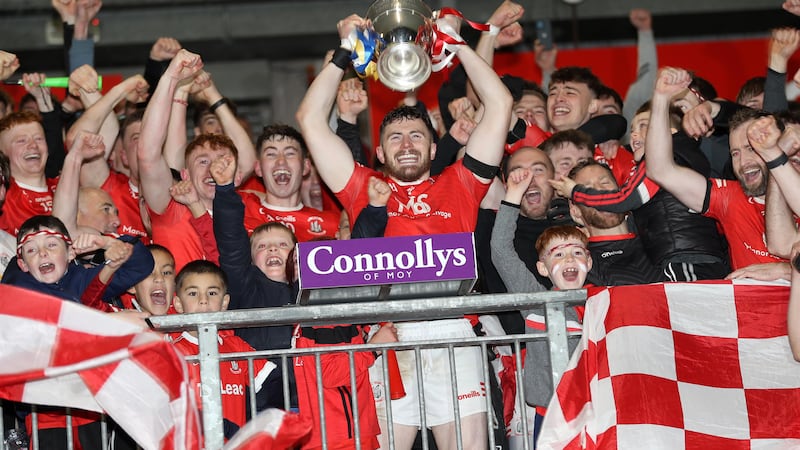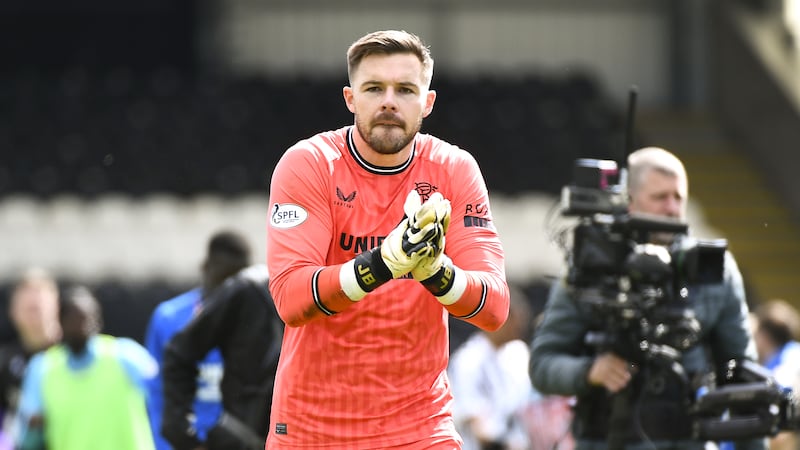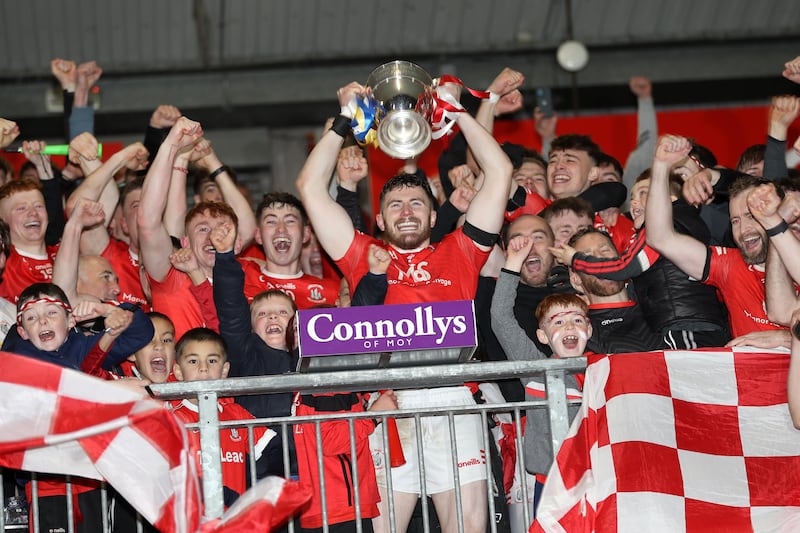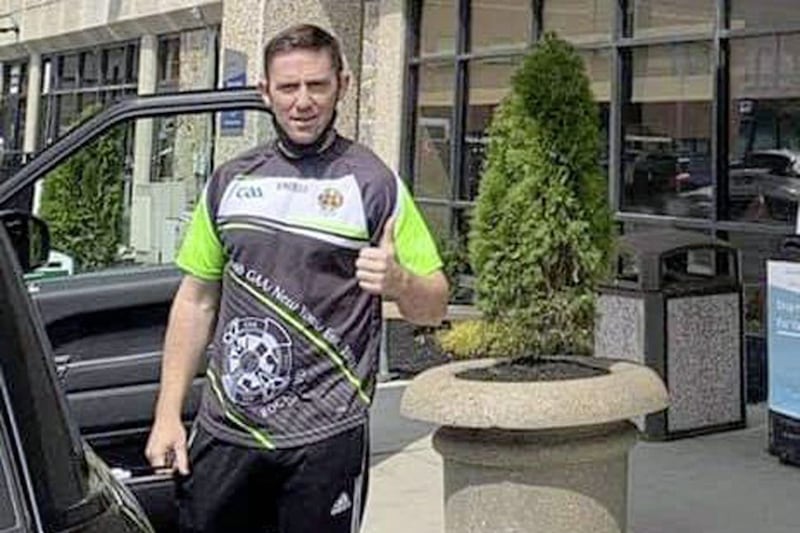Mickey Coleman’s memoir ‘Pulse’ is a story of ‘What Might Have Been…’ in a potentially awful way; the Ardboe man nearly died several times from a massive heart attack in March 2021.
The account of that day, and night, and the weeks and months of slow recovery afterwards understandably dominate his book.
However, ‘Pulse’ is also a tale of ‘What Might Have Been…’ on the sporting front.
Read More
- Cahair O'Kane: Glen and Kilcoo perfecting the art of timing
- Inspirational Gaelic footballer Joel faces fight of his life
As I said to him, it seemed rather strange asking a man who has a Celtic Cross to his name, as one of the first ever winners of the Sam Maguire Cup from Tyrone, if he felt he had under-achieved in his footballing career.
Yet before I’d even finished my question, he was agreeing with that suggestion, acknowledging a residual pang that he might have done more, won more.
A rising star on a strong Ardboe team in the late Nineties, he went over to the USA as early as his teenage years, missing out on potential Tyrone Minors involvement.
Having returned back home, he did have some U21 involvement under Mickey Harte, and graduated to the senior scene under Danny Ball, but then went back to America in 2000, even though Art McRory and Eugene McKenna, back in charge of Tyrone seniors, wanted him in their squad.
Coleman’s isn’t a tale of sporting woe. He did return home again, and was part of that never-to-be-forgotten All-Ireland triumph in 2003, when the Red Hands finally lifted ‘Sam’.
America is where he found his wife, founded his own successful construction business, and is raising a family.
And yet he still has those regrets.
Mickey Coleman is far from alone in having such conflicted feelings.
The desire to explore the world when you’re young, footloose and commitment-free is entirely understandable.
However, you don’t have to go halfway across the world in search of adventure, romance, or work to be taken away from your club.
The outside perception is often that someone has ‘under-achieved’, that they ‘failed to fulfil their potential’.
Sometimes that is the case. Some do fall by the wayside.
More often, though, there are many reasons why a player didn’t ‘kick on’, didn’t deliver more on their youthful promise.
Some simply head off in a different direction.
The world is full of distractions, even in the backwaters and byways of Ireland.
Certain small words can have a huge impact:
Life
Work
Family
Health. Both physical and mental.
Still, players at clubs all over Ireland often put their playing career ahead of their actual career, especially those at more rural clubs.
The increasing concentration of economic wealth, including jobs, in cities, notably Dublin and Belfast leads to greater pulls away from home for those who don’t live in, or fairly close to, either of those places.
As has been often said recently, players are the last amateurs in the GAA.
It would be naïve in the extreme to believe that many managers and coaches are travelling long distances to other clubs simply out of the goodness of their heart and their love for the games.
At the very least, their travelling expenses will amount to considerably more than their fuel costs.
Inter-county players are remunerated, but club players, in contrast, will often be out of pocket for the privilege of playing for their home team.
Many continue to sacrifice themselves, to put their club first.
It’s somewhat easier to stay at those clubs who regularly compete for county titles and sometimes even provincial honours.
The really dedicated devotees are those players who plug away at clubs for whom a county final appearance may well literally be a ‘once-in-a-lifetime experience’.
At those clubs which never enjoy senior success, perhaps never even compete at senior level.
The positive thing is that the older generations of supporters really do seem to appreciate the commitment of players, realise the hard choices that many of them have to make.
Sure, in many ways it was more difficult in their day, but they know that there are fewer employment opportunities in the countryside now – and they want their children and grandchildren, the next generations, to make the most of their lives.
The ‘split season’ has helped the club-life balance of the majority of players, but the very best continue to have severe demands placed upon them.
Whenever club championships are won, the trophies handed over, there are always, quite rightly, tributes to the tremendous dedication and commitment of players, both on the team and in the panel.
Yet being there at all, never mind for every night of training, can be worthy of comment and commendation in itself.
Spare some feelings, though, for those who aren’t up on the podium, or weren’t out on the pitch for other teams.
Sticking at it is tough.
Giving it up, going away from home, isn’t necessarily easier either, though.
Sportspeople often say that defeats stick more in the memory than victories. ‘The ones that got away’.
Missing out entirely, through injury or suspension, say, is hard enough. Missing out through your own choice, even if for the best of reasons, can be even harder to deal with.







